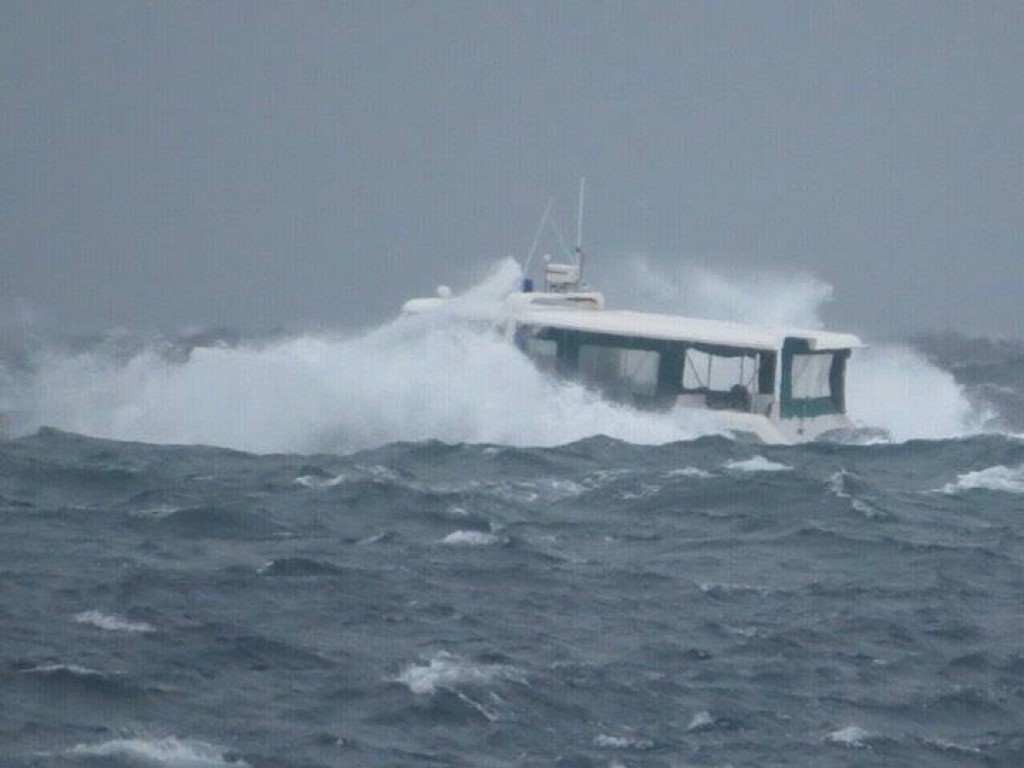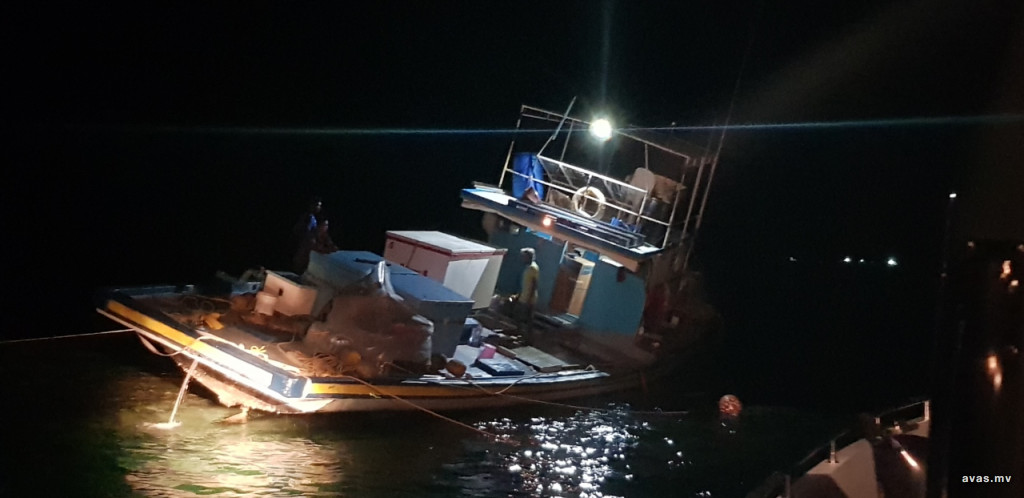Earlier on Saturday Maldives National Defense Force (MNDF) confirmed receiving three reports of accidents or incidents at sea. All reported during the early Saturday morning.
The incidents included a speedboat getting turned upside down at Hulhule' lagoon, another vessel drifting after the ropes binding it to the quay broke. The third incident involved a fishing vessel's rudder hitting a malfunction.
Meanwhile Maldives Meteorological Center (MET Office) has issued white alert on upper north Haa Alif atoll stretching all the way below to central atolls of Maldives.
The three incidents that were reported on Saturday morning all occurred within the area national weather forecast center had issued a white alert on.
The national meteorological center had thus advised all vessel operators and owners to take precaution while making trips through the seas within the said region; as wind speed was expected to pick up pace significantly and the seas have started getting rough.
Every year MNDF's Coast Guard unit is notified of several disastrous accidents taking place at sea in Maldives. The authority had also claimed of sea accidents being reported in every five days throughout the year. This means an approximate at least 60 incidents or more every year.
While it can be argued that accidents at sea are mainly due to natural causes or reasons, it still does not justify on why many who frequent the seas for various purposes often ignore to heed cautionary warnings by relevant authorities.
During seasons with rough seas, Maldives expects several accidents at sea given how the nation is largely filled with an area of ocean. Due to the fact that even domestic travel from one island to another is mainly conducted through the medium of sea (except for the domestic airplanes or seaplanes).
Many vessel owners disregard maximum passenger capacity while carrying people from island to island. Boats or vessels specifically made to carry goods have a weight limit that can be accepted, however, those who own or manage such vessels often ignore exceeding weight.
This is dangerous even on a clear sunny day since one can never know when the excess weight in the vessel may result in it toppling.
During stormy weathers or through rough seas, such a trip with excess weight in ships or boats often lead up to catastrophic results.
Many local businessmen have reported of suffering heavy financial losses when their merchandise gets sunk mid-way through the trip; insurmountable amounts of loss that cannot be recovered within a day or two.
Mostly because these incidents have often happened over gross negligence on many levels; including disregard to weather warnings issued by relevant authorities.
To change this, each and every one of us must understand the importance of safety and safeguarding things valuable to us. Though most of the incidents that had taken place at sea recently did not report of casualties, there have been some vessel owners or boats that have had not been so lucky.
Betting one's self against mother-nature is not a wise choice given how we can establish a fact that mother-nature eventually gets the upper hand. But it sure is up to us whether we heed caution imparted by others and prepare while we can.







